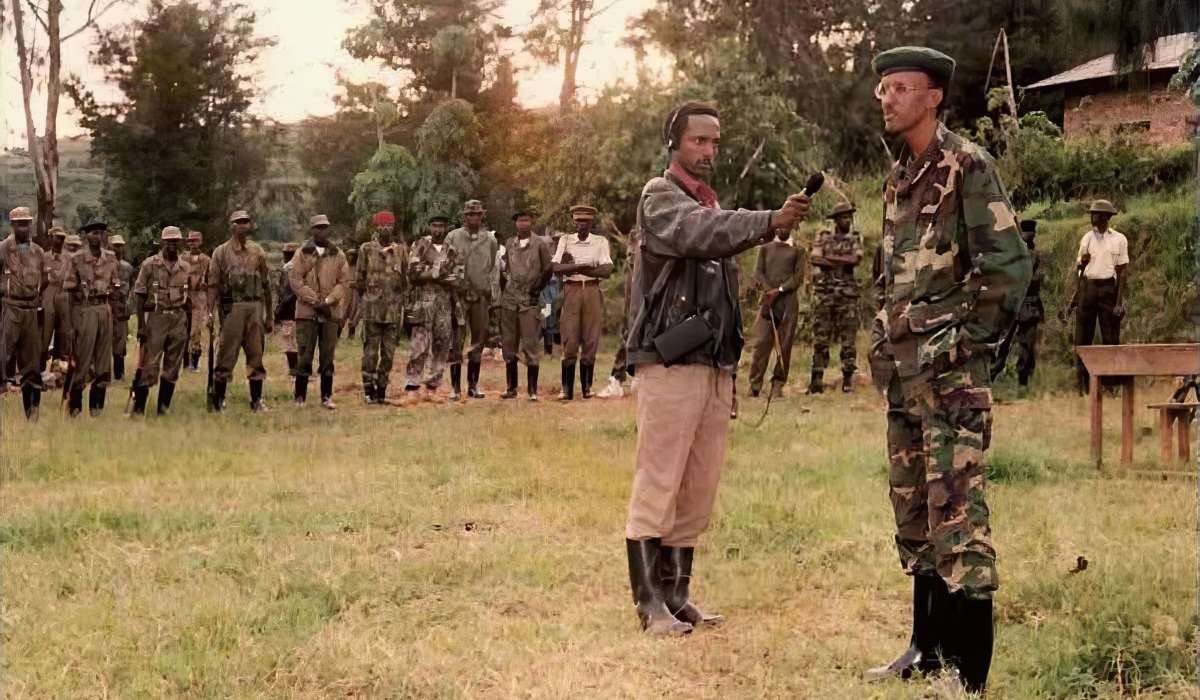Optinion
Why Rwandans want Kagame for another term
.jpg-20231002075336000000.jpg)
President Paul Kagame during 2017 presidential campaign in Gasabo district, Kigali city.
Rwandan
President Paul Kagame announced, in September, that he will run for another
term in the 2024 general elections. President Kagame is pleased with the
confidence Rwandans have shown in him and he does not care about the West’s
criticism as long as his people want him to serve.
“Sorry
to the West, but what these countries think of us is not our responsibility,” President
Kagame told Jeune Afrique.
“What
is democracy? The West dictating to others what they should do, but if they
violate their own principles, how can we listen to them? Trying to transplant
democracy is already a violation of democracy itself. People are supposed to be
independent and should be allowed to organize themselves as they wish,” he
added.
After
the 1994 Genocide against the Tutsi, Rwandans had no hope. They were not sure
if they would live in a secure and peaceful country.
Many
never imagined having a leader who would ably transform their nearly failed
state. But, in spite of all the challenges – and they were very many – Kagame did.
Rwandans think that exemplary leaders like him are scarce, hence they cannot misplace
an opportunity to have him as president whenever he accepts to serve them.
Rwandans have their own reasons.
Peace and security
Only
Kagame has made it possible for Rwanda to remain stable for almost three
decades. He built strong and disciplined professional security forces, among
others. Rwandans are enjoying a safe and secure country.
Four
decades after independence from Belgium, Rwanda was marked by instability with
its leaders promoting discrimination and division among citizens. By then,
government officials were busy in power struggles based on regional alliances, and
having no time to serve Rwandans.
Kagame
led post-genocide Rwanda and invested all his effort in bringing peace,
security and stability in a devastated country.
“Rwanda
has invested much effort in its national security, by building competent and
professional security organs,” read a 2022 survey by Usebounce that
ranked Rwanda the sixth safest country in the world and safest country in
Africa for solo travelers.
Usebounce, a
luggage storage app, created the ranking by combining a crime index and a
safety index to evaluate where solo travellers would feel safest.
Unity and inclusivity
Under
Kagame’s leadership, Rwandans have endeavoured to leave behind the effects of
successive bad and divisive politics that marred the country ever since the
colonial era and which culminated into the 1994 Genocide against the Tutsi.
The
current Rwandan government provides equal access to opportunities and resources
for all.
For
Rwanda to become a better country for its people and for it to make an
important contribution in the world, Kagame once noted, “we have to protect our
community, our achievements, our unity, and understanding a Rwandan and that he
or she needs to be valued.”
There
is no doubt that how far Rwanda has come in the last 29 years is due to the extraordinary
efforts and the lessons Rwandans drew from their bad history.
Kagame
has maintained that to achieve what has been achieved, and more, it calls for
unity, for inclusive politics, for “the dignity we deserve,” and the politics
that pushes Rwandans to strive for more.
Kagame established a sense of belonging to
many Rwandans who had completely lost it. He removed ethnic categorization from
identity cards, eradicated divisionism, established national unity and
reconciliation, healed the wounds of genocide, and restored a proper justice
system.
Convincing
the perpetrators and survivors of the 1994 Genocide against the Tutsi to live
together was next to impossible, but Kagame achieved it. Many world leaders refer
to this achievement as a miracle.
A transformational leader
Rwanda's rapid transformation is fundamentally
hinged on trust between the leadership and the people of Rwanda.
In 2000, when he became President, Kagame inherited
a country that had been torn apart by genocide. His Western critics and others
outside of Africa fail to acknowledge the complexities of governing
post-genocide but Rwandans know the difficulties their society faces.
From
what Kagame’s leadership achieved in transforming Rwanda from a failed state to
one of the most successful stories in the world, Rwandans still want him to
accelerate the country’s development.
Kagame's
leadership has had a profound impact on the country. Rwanda has seen tremendous
economic growth, improved infrastructure, and a dramatic reduction in poverty.
Kagame
implemented a number of policies to promote economic growth. He has encouraged
foreign investment, reduced taxes, and implemented a number of reforms to make
the business environment more attractive to investors.
Rwanda
aspires to middle income country status by 2035 and high-income country status
by 2050. It planned to achieve this through a series of seven-year national strategies
for transformation underpinned by sectoral strategies focused on meeting the
UN’s Sustainable Development Goals (SDGs).
Growth
averaged 7.2 per cent a year over the decade to 2019, while per capita gross domestic
product (GDP) grew at 5 per cent.
Rwanda
is one of two countries in Sub-Saharan Africa that achieved all the health
Millennium Development Goals (MDGs): under-five mortality declined sharply
between 2000 and 2020, and the maternal mortality ratio dropped, as did the fertility
rate.
The
country’s strong focus on homegrown policies and initiatives contributed to
significant improvement in access to services and human development indicators.
Rwanda’s
economy showed resilience despite a challenging economic environment in 2022.
After a strong rebound in 2021 from the COVID-19 induced-contraction in the
preceding year, the economy faced multiple challenges in 2022—pandemic scars,
headwinds from the war in Ukraine, climate-related shocks, and mounting
inflationary pressures.
Despite
these challenges, Rwanda’s real GDP grew by 8.2 per cent in 2022.
Rwandans
today dream big.
In so many ways, Kagame symbolises hope for Rwandans.








